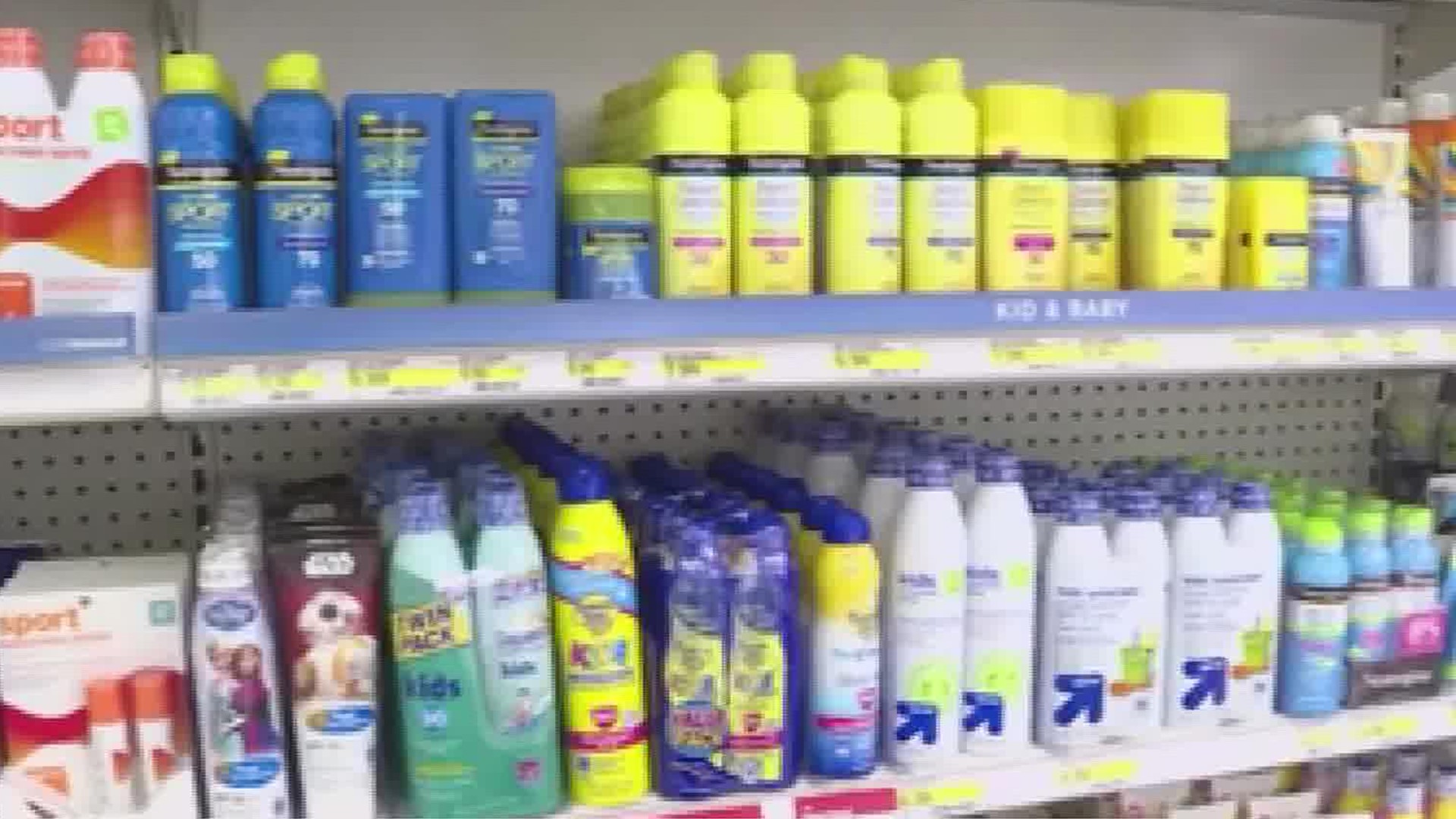Pennsylvania ranks ninth in the nation for new melanoma cases in 2022, according to the Cancer Statistics Center from the American Cancer Society.
It could take as little as 15 minutes for the sun to cause damage to the skin, and although certain skin types are more prone to skin cancer, Dr. David Gasperack from WellSpan Health states the sun poses a risk to everyone.
“Really anytime we’re going outside, whether it's in the summer, spring or fall, we really should be wearing sunscreen to help protect the skin," said Gasperack. "Current recommendation is to have something of at least 30 SPF or higher.”
SPF 30 sunscreens will block 97% of the sun’s harmful rays, according to Gasperack. He says that, even though there are higher SPF numbers, you won’t get much of a difference.
For example, while SPF 30 blocks 97% of the sun’s harmful rays, SPF 50 blocks 97.3%, so the difference is negligible.
Gasperack added there is no difference between lotion and spray-on sunscreen in terms of protection.
“As you know, you can get all different preparations now," he explained. "You can get it in a cream, a spray, a stick – again, the key is the SPF. As long as it's got an SPF 30 or higher and you can ensure that you have a good spread of the sunscreen over the skin, the brand doesn’t really matter.”
Experts suggest applying sunscreen 30 minutes or longer before going outside is the best approach. Once you’re outside, you should be reapplying every two hours or if the skin gets wet.
If you do happen to get sunburn, use moisturizer on the skin that contains aloe to get some relief. If the sunburn or pain is more severe, you want to start taking frequent cool showers or baths. You can also take Tylenol or Ibuprofen for pain and inflammation.

